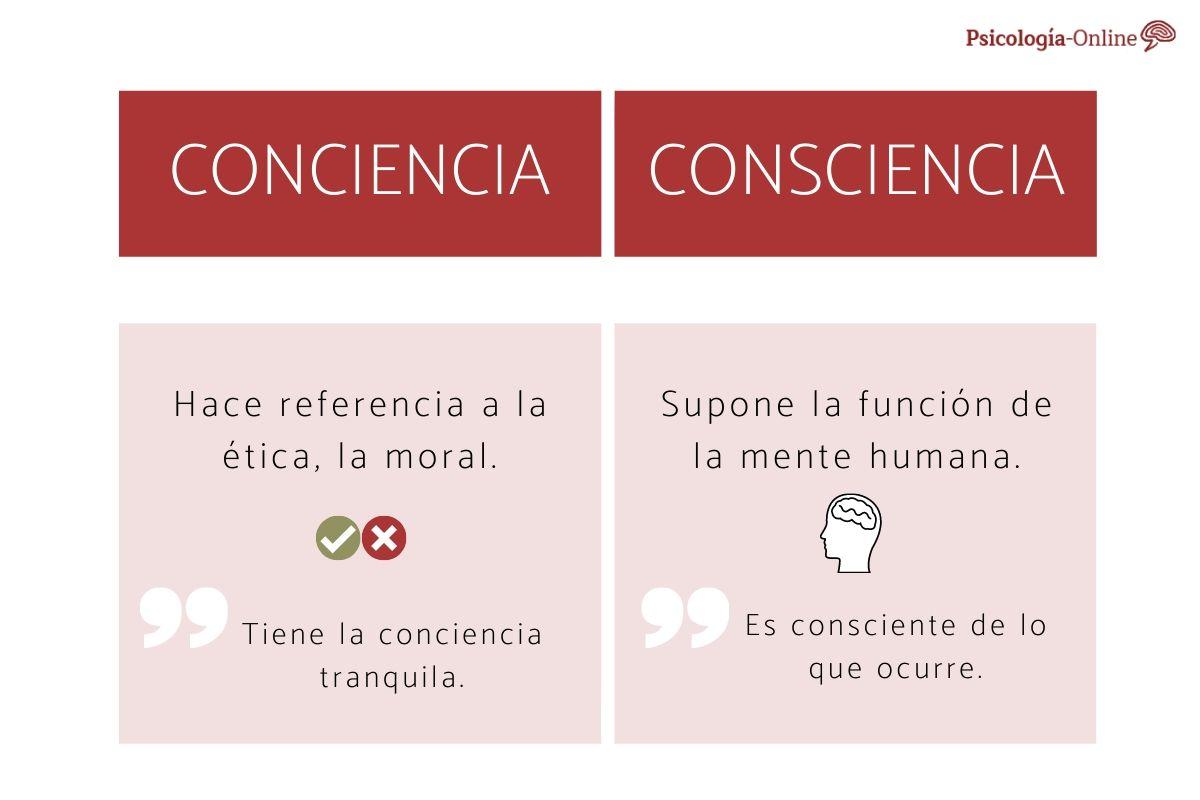The relationship you have with yourself throughout your life is one of the most significant. This link related to your own identity offers special meaning to commonly used terms: self-esteem and self-concept. However, although both terms are sometimes used as if they were synonyms, in reality, they have different nuances that we analyze in this article in PsychologyFor.
¿What is the difference between self-esteem and self-concept ? We will tell you below by explaining the specific meaning of each word.
What does self-concept consist of?
The term self-concept refers to the description that a person makes of himself through the use of adjectives and reflections that refer to his abilities, his virtues, his talent, his abilities, the traits of his way of being, his own qualities.. That is, in the self-concept it is possible to encompass all those nuances that a person identifies as their own when describes herself at a theoretical level.
Definition of self-concept
The self-concept is nourished by one’s own experiences that are part of the experience of a human being since from them one also knows oneself better in the exercise of living. This means that although there are traits of the self-concept that remain over time because the person is essentially the same, this element can also vary from the dimension of the new experiences of each life stage.
Self-concept is expressed through language
Both self-concept and self-esteem are linked to the type of relationship that a person has with themselves, however, the point of view from which this view is taken is different. The self-concept has one more component cognitive while self-esteem is subjective view felt on an emotional level. The self-concept shows the descriptive analysis that a person can share with another.
Obviously, although self-esteem and self-concept are not two synonymous terms, they are interconnected since they provide a more complete vision of the personal core.
What is self-esteem in psychology?
From the affective and emotional point of view, self-esteem refers to the feeling of appreciation that a human being has towards himself. That is, it refers to how you feel about yourself since a happy bond of self-love is a solid foundation for happiness.
Self-esteem in children
A moment in which the figure of reference people in the closest environment constitutes a solid value for strengthening this emotional well-being in the child. The bases of self-esteem, then, begin to be forged in childhood.
Messages received from external people offer information to the person receiving this feedback. In adulthood, human beings also receive recognition of themselves through the opinions and evaluations of others. However, at that time, the adult also has a more formed self-concept and internal resources to avoid making mistaken self-assessments. Therefore, self-esteem refers to how what you observe about yourself makes you feel. Next, we will name the main differences between self-esteem and self-concept.

What is the difference between self-esteem and self-concept?
While self-concept is the image we have of ourselves, self-esteem is the subjective assessment of said image. Depending on the self-concept we have of ourselves, our self-esteem will be higher or lower.
Relationship between self-esteem and self-concept
Self-concept, the way a person views themselves, influences how they feel when making their own evaluations. That is, how she thinks about herself influences how she feels. The connection between thought and feeling it’s constant.
When a person has a positive self-concept, this fact is also manifested in practice through their self-esteem and vital sensations such as joy, motivation, inner peace or excitement. On the contrary, if when a person analyzes his or her self-concept he or she does not feel comfortable with that description, these negative value judgments produce the opposite effect to the previous case.

5 tips to improve low self-esteem and self-concept
Below, we give you ideas to improve your relationship with yourself through a strengthening self-esteem and self-concept as terms that reinforce the self-knowledge :
- Write a gratitude journal This feeling is one of the deepest on an existential level. And, furthermore, you can not only reinforce gratitude in your relationships with other people, but also with yourself. To do this exercise to encourage positive thinking, find a time of the week when you focus on this therapeutic writing technique.
- Makes positive value judgments from those traits that you observe in yourself as valuable and significant. Therefore, truly value yourself. You can do this consciously in your conversations with others by highlighting some significant aspect.
- Identify in what recent moments you have spoken negatively about yourself yourself and what alternative messages you would like to tell yourself now. You can write a message of affection addressed to yourself, a letter that represents the hug you want to give to that part of yourself that sometimes feels vulnerable because it is a perfectionist.
- Correct the generalization< When your speech is conditioned by an absolute point of view that leaves no room for nuances, break that dynamic through the richness of language. Be careful with those ideas that are formulated through always, never, all or nothing. You can also correct other people around you when you think they are victims of a generalization. That is, you can help them realize how those absolute statements are not objective.
- Celebrate your achievements< It is not about exaggerating them from the ego but nor about undervaluing them from insecurity. Therefore, he adopts this attitude of humility and celebration as a present good. Live life's happy events naturally and adopt a proactive attitude to generate new learning environments.
This article is merely informative, at PsychologyFor we do not have the power to make a diagnosis or recommend a treatment. We invite you to go to a psychologist to treat your particular case.
If you want to read more articles similar to Difference between self-esteem and self-concept we recommend that you enter our Cognitive Psychology category.









